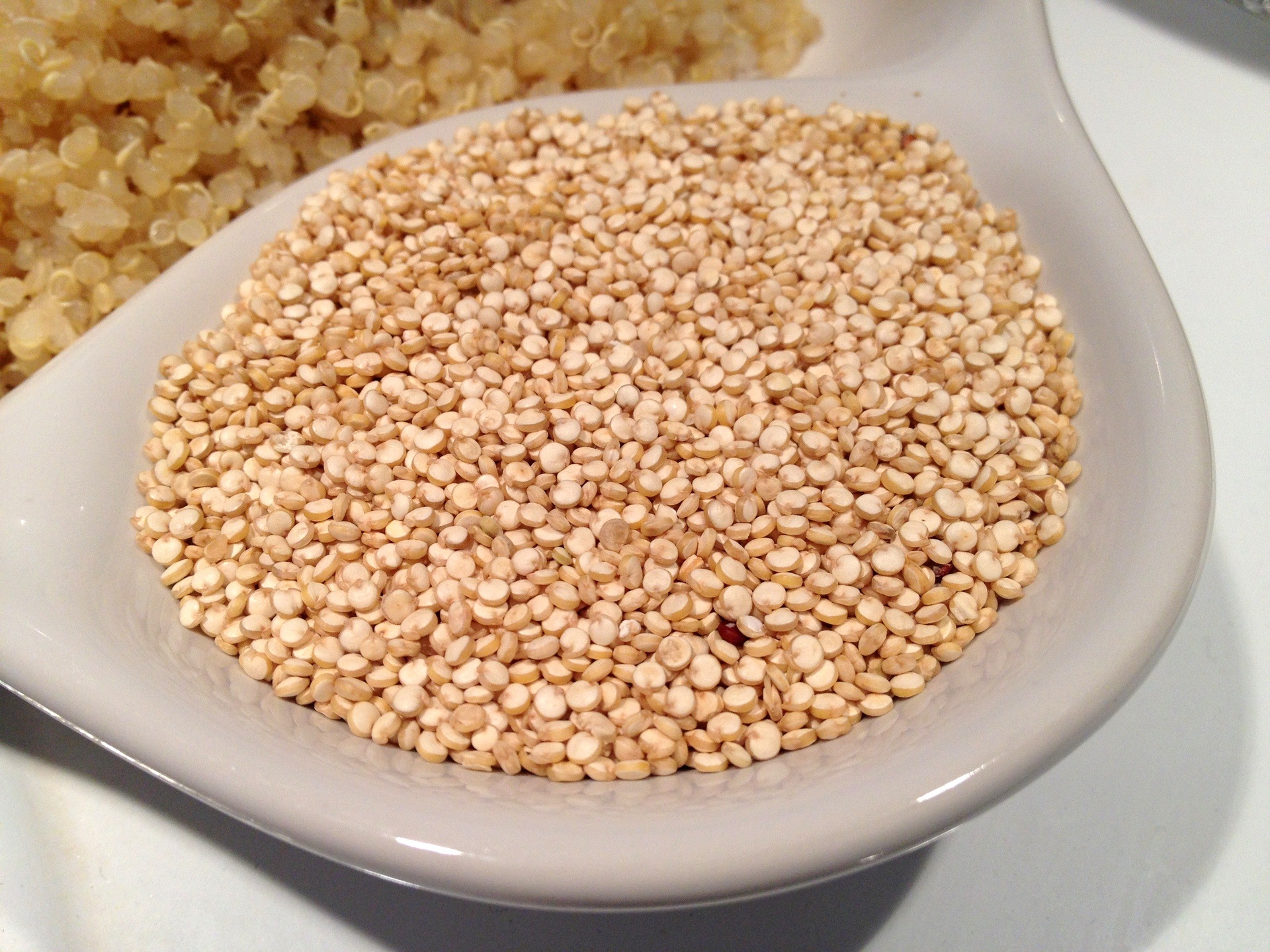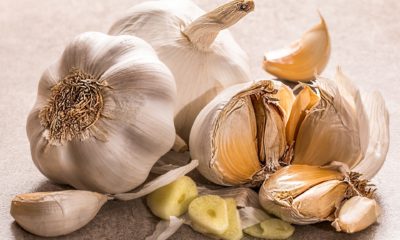SUPERFOOD
15 Evidence-based Health Benefits of Quinoa!
Quinoa is a grain crop, primarily grown for its edible seeds. It is a pseudocereal rather than a true cereal, not a member of the true grass family. The scientific name of quinoa is Chenopodium quinoa. It is primarily grown in South America. Quinoa seeds contain all nine essential amino acids. It is gluten-free, high in protein and a tolerant of dry soil.
Quinoa is rich in magnesium, potassium, phosphorous, calcium, sodium. It has trace amounts of iron, zinc, copper and manganese. It is also rich in phytonutrients and flavonoids like kaempferol and quercetin, as well as tryptophan.
Quinoa is an ideal source of vitamins. It contains significant amounts of thiamin, riboflavin, folate, niacin and vitamin B6.
Quinoa contains anti-oxidants that help protect heart, liver, lungs. It is also good for bones, maintains glucose levels, reduces the risk of gallstones, and also good for digestive system.
Nutritional value
Nutritional Value of Quinoa (Per 100 g)
| Energy | 503KJ |
| Carbohydrates | 21.3g |
| Sugars | 0.87g |
| Dietary fibers | 2.8g |
| Fats | 1.92g |
| Protein | 4.4g |
| Vitamin A | 53 μg |
| Thiamine | 0.107mg |
| Riboflavin | 0.11mg |
| Niacin | 0.412mg |
| Vitamin B6 | 0.123mg |
| Folate | 42 μg |
| Choline | 23mg |
| Vitamin E | 0.63mg |
| Calcium | 17mg |
| Iron | 1.49mg |
| Magnesium | 64mg |
| Manganese | 0.631mg |
| Phosphorus | 152mg |
| Potassium | 172mg |
| Sodium | 7mg |
| Zinc | 1.09mg |
15 Evidence-based Health Benefits of Quinoa
1. Rich Source of Antioxidant
Antioxidants in Quinoa help in protecting the heart, liver, lungs, against oxidative stress. The antioxidants found in quinoa include anthocyanin, phenolic, and polyphenols.
2. High in proteins
The quinoa plant has high protein value because it is a wonderful source of essential amino acids like lysine, tryptophan, all of which cannot be synthesized in the body.
3. Regulating glucose levels
Consuming quinoa seeds on a regular basis can be beneficial in regulating blood glucose levels and cholesterol levels.
4. Promotes Bone health
People who are intolerant of dairy products can replace it with quinoa. Quinoa contains a good amount of calcium and is similar to that of dairy products. Calcium is very important for the bones, brain, teeth and nervous system.
5. Prevents cardiovascular diseases
Quinoa is considered good for reducing the risk of cardiovascular diseases. It contains proteins and carbohydrates with low glycemic value. It also has omega-3 and omega-6 fatty acids, antioxidants which are good for heart health.
6. Helps in Healthy digestion
Quinoa is beneficial in improving the digestive process. It contains insoluble fiber which helps in regulating healthier bowel movements. This also helps in reducing bloating, pain and constipation.
7. Reduces gallstones risk
The fiber content in quinoa also helps in reducing the risk of gallstones. It helps in reducing the secretion of bile juice, which leads to the formation of gallstones.
8. Rich in magnesium
The dietary intake of magnesium helps to control of risks of asthma, increase bone health, increase heart health, and also regulates blood sugar levels.
9. Helps in Weight loss
pseudo cereals like quinoa did not induce more eating. Those who want to control their diet and lose weight, consuming quinoa will help to control appetite, thereby promoting a healthier weight.
1o. Heal damaged tissues
Quinoa contains lysine, an essential nutrient which cannot be synthesized by the body and is a key building block which synthesizes elastin and collagen. This aids in quick healing of damaged tissue, scar tissue and ligaments for a quick recovery, thus important for people who are recovering from any surgery or injury.
11. Rejuvenates the Skin
Consumption of quinoa seeds provides the body with collagen which reduces wrinkles and other symptoms of aging thus, rejuvenates the skin from inside making it soft and supple.
12. Promotes Hair growth
Consuming quinoa on a regular basis makes hair silky and shiny. It provides nourishment to the hair follicles, which is essential for our hair growth. It also helps in the formation of red blood cells which promotes hair growth.
13. Prevents Heart Diseases
Quinoa contains a lot of proteins and dietary fibers, which keeps full for longer period of time. This helps to lose weight and also reduces the building of plaque in the arterial walls heart, reducing the risk of strokes and other heart diseases.
14. Improves fertility
Deficiency of protein can also affect fertility in women, as it can also interfere with the menstrual cycle. Doctors advise quinoa to women for improving protein content in their body.
15. Helps with Migraine
Deficiency of magnesium levels can cause migraine problems. Quinoa contains a good amount of magnesium that reduces risk for migraines.
Tips to eat quinoa
Before cooking quinoa, make sure that the saponins layer on the seeds has been removed. These saponins can give a bitter taste to quinoa if it is not rinsed off properly.
Boiled Quinoa: after soaking and rinsing, quinoa can be boiled in water. Take 1 cup of quinoa and 1½ cups of water to boil. Boil it for 15 minutes, then add a pinch of salt for it to cook. After few minutes serve.
Quinoa Salad: Quinoa can also be added to salads. The salad tastes good and is nutritious, also good for those who want to lose weight.
Quinoa with Cheese: cook quinoa in boiling water and add cheese, garlic, and dried tomatoes to it. Cook for few minutes and serve hot. Enjoy the tasty dish.
Well, there are very few health risks of quinoa. You need to take care that seeds are properly washed because the coating of saponins can lead to irritation in the stomach.





















